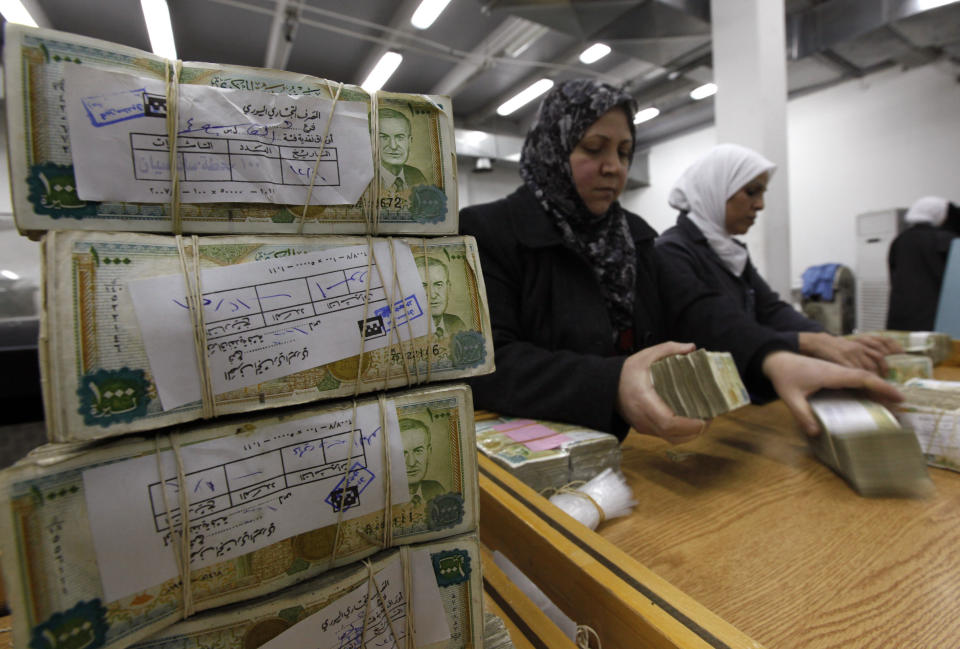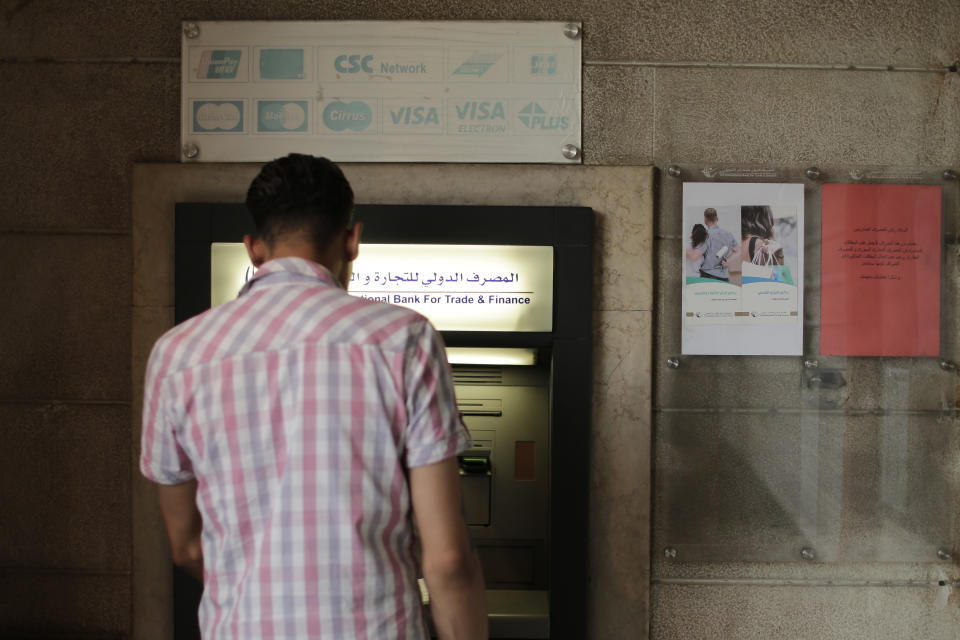Syrian pound hits record low, setting off hike in prices
DAMASCUS, Syria (AP) — The Syrian pound hit a record low against the dollar recently before making some gains Tuesday, setting off a hike in prices in the war-torn country where a large percentage of the population already lives under the poverty line.
The pound was trading at 660 to the dollar after reaching 690 pounds to $1 on the black market last week — lows never reached before. The official rate has remained stable at 434.
The collapse of the Syrian pound is blamed on tough Western sanctions against the government of President Bashir Assad, speculation, a drop in remittances from Syrians living abroad and the fact that many Syrians are buying up dollars to preserve their savings. When Syria's civil war began in March 2011, a dollar was valued at 47 pounds.
Speculation is not uncommon in Syria and neighboring countries, where traders buy and sell currency in order to make quick profits because of changes in the exchange rate.
The rise in the exchange rate has resulted in prices of basic commodities, mainly sugar and rice, changing from morning to evening. In some shops, basic items disappeared from shelves only to reappear later with higher prices.
Demand for even basic foodstuffs has gone down because people are only buying essential items.
Abboud Mardini, owner of a mini market, told The Associated Press that prices have risen between 15% and 20% recently. "Everything is available but prices are high," he said.
"I used to sell one kilogram of sugar at 300 pounds, but on Sunday the price rose to 375 pounds," he said.
Syrians on social media have been urging the government to intervene to control the market.
"The attack on the pound is another act of war," said al-Baath newspaper, the mouthpiece of the ruling Baath party, in an editorial Tuesday, adding that Syrians want the government "to play its role in facing the holders of the weapons of starvation and impoverishment," a reference to speculators.
The pro-government Al-Watan newspaper said rumors on social media that the dollar would rise soon was behind Sunday's fall of the pound.
Al-Watan said the pound noticeably improved on Monday and increased by 4.5 % to reach 663, attributing the improvement to the government's intervention "without pumping even one dollar into the market."
On Monday, the Cabinet's economic committee held a special meeting to take action to ensure basic commodities for people and control prices.
Economist Abdul-Qader Qaddour told the AP that the main reason for the pound's depreciation is "speculation" on the black market and there is no change in the factors that are usually blamed for the fall in the pound.
He said the drop requires "speedy and deterrent government measures against speculators and smugglers across the borders."
Merchant Ghabi Nakazi, 62, said the Central Bank of Syria must raise the official exchange rate to match the price on the black market.
He said the main reason behind the fall of the pound was speculation, calling on the government to hold merchants accountable and check on whether their imports were real or fake.
The crash of the pound could throw more Syrians into poverty as food prices and prices of other commodities rise. Eight out of 10 Syrians live below the poverty line, making less than $100 a month, according to the U.N.

 Yahoo Finance
Yahoo Finance 

